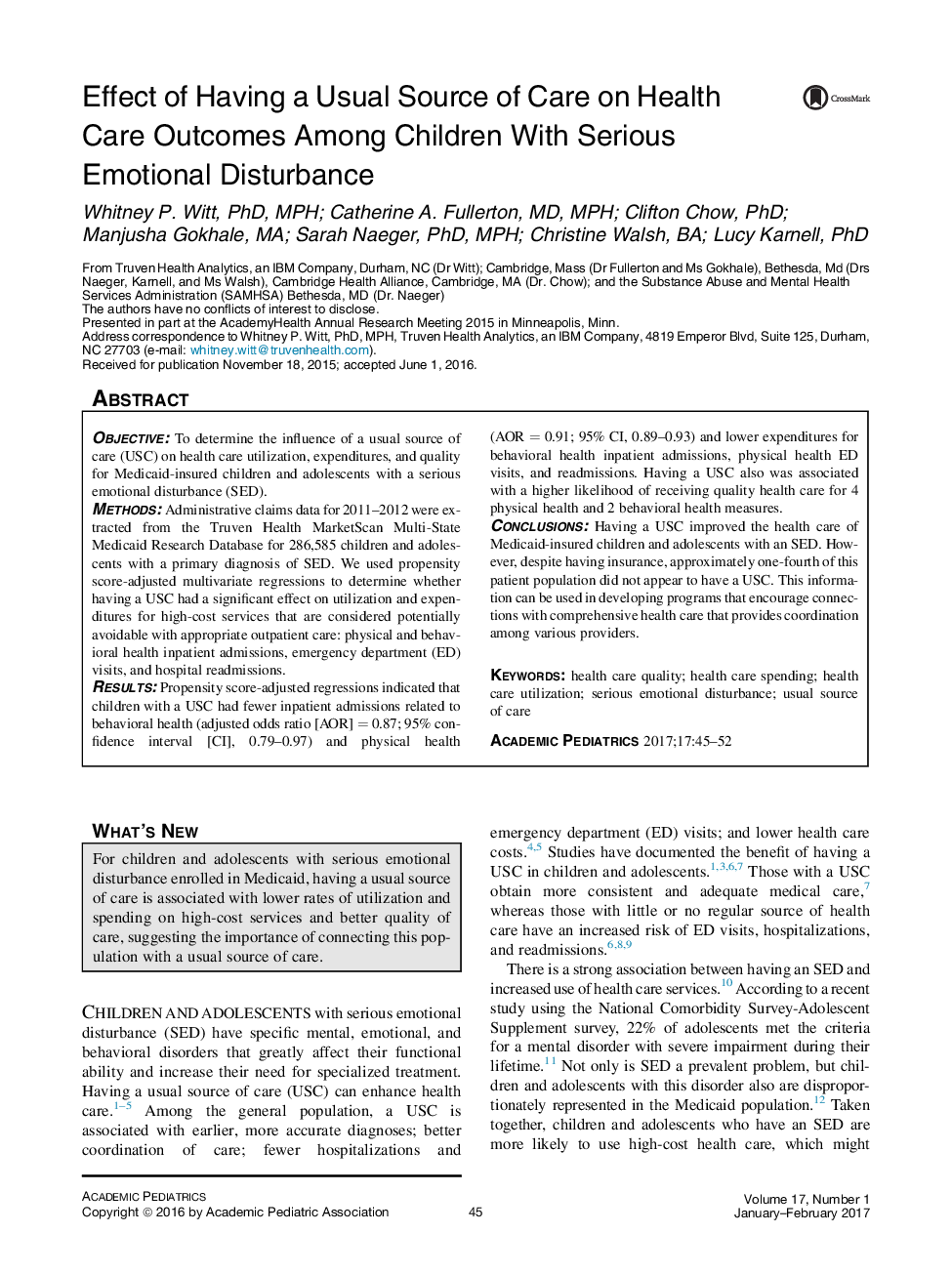| Article ID | Journal | Published Year | Pages | File Type |
|---|---|---|---|---|
| 5717019 | Academic Pediatrics | 2017 | 8 Pages |
ObjectiveTo determine the influence of a usual source of care (USC) on health care utilization, expenditures, and quality for Medicaid-insured children and adolescents with a serious emotional disturbance (SED).MethodsAdministrative claims data for 2011-2012 were extracted from the Truven Health MarketScan Multi-State Medicaid Research Database for 286,585 children and adolescents with a primary diagnosis of SED. We used propensity score-adjusted multivariate regressions to determine whether having a USC had a significant effect on utilization and expenditures for high-cost services that are considered potentially avoidable with appropriate outpatient care: physical and behavioral health inpatient admissions, emergency department (ED) visits, and hospital readmissions.ResultsPropensity score-adjusted regressions indicated that children with a USC had fewer inpatient admissions related to behavioral health (adjusted odds ratio [AOR]Â =Â 0.87; 95% confidence interval [CI], 0.79-0.97) and physical health (AORÂ =Â 0.91; 95% CI, 0.89-0.93) and lower expenditures for behavioral health inpatient admissions, physical health ED visits, and readmissions. Having a USC also was associated with a higher likelihood of receiving quality health care for 4 physical health and 2 behavioral health measures.ConclusionsHaving a USC improved the health care of Medicaid-insured children and adolescents with an SED. However, despite having insurance, approximately one-fourth of this patient population did not appear to have a USC. This information can be used in developing programs that encourage connections with comprehensive health care that provides coordination among various providers.
